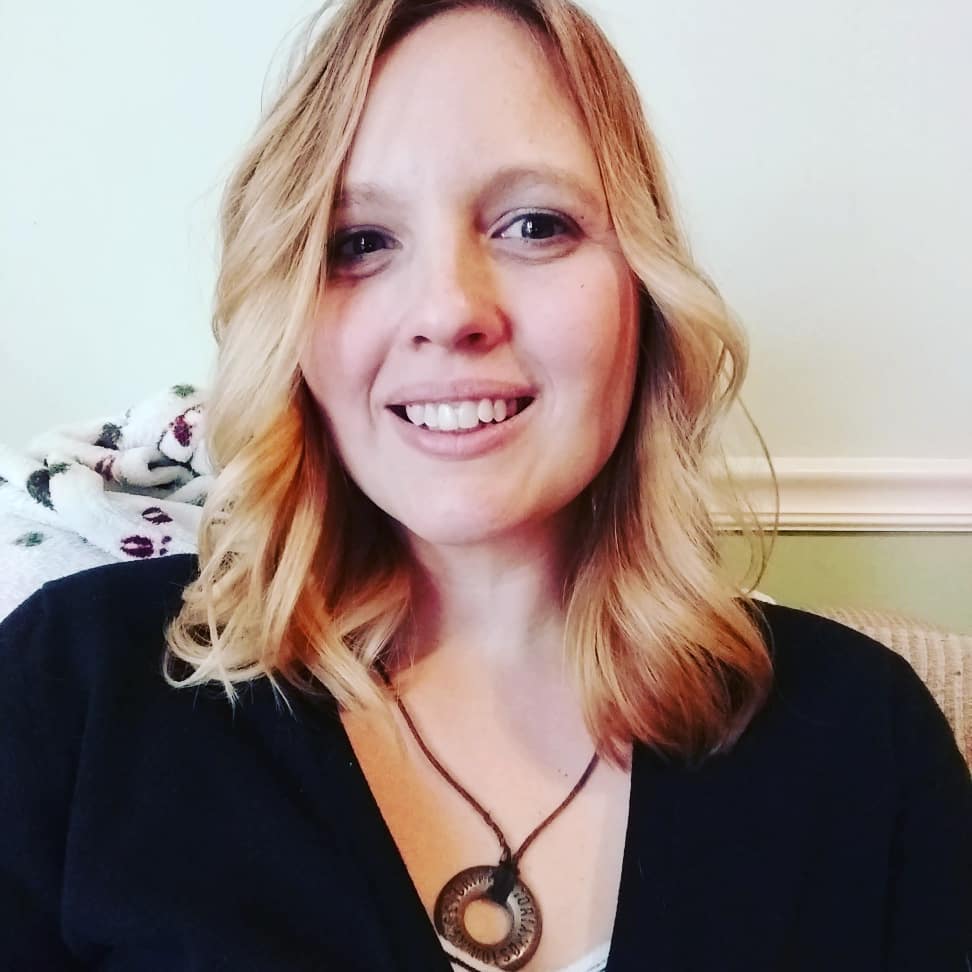ISSN: 1941-4137
POETRY THAT ENACTS THE ARTISTIC AND CREATIVE PURITY OF GLASS
POETRY THAT ENACTS THE ARTISTIC AND CREATIVE PURITY OF GLASS

Sara Moore Wagner is the author of the chapbook Hooked Through (Five Oaks Press, 2017). Her poetry has appeared in many journals and anthologies including Gulf Stream, Stirring, Gigantic Sequins, The Pittsburgh Poetry Review, and Arsenic Lobster, among others, and she has been nominated for a Pushcart prize. She lives in Cincinnati with her filmmaker husband Jon and their children, Daisy, Vivienne, and Cohen.
Penelope Complex
What I do
when you're clear
over there, over
me is tie myself
to the outside
of the house, naked
and pregnant, tie
myself to the drainpipe,
the clogged one — I want
to be seen doing something
unlike myself. Gender
is this burden in the hip, shooting
up the drainpipe, up
instead of into the earth — remember
I am a piece of moon. This is my
catabasis. Hunker down
or hold me against
the clean sheet
of the sky, legs out
like chem trails. I want
to divide myself
from the image you've written
in that book about mothers,
you know the one — I am
listening to the wind
for another voice
to call me out of my body,
a stone from the evening,
an eye for an eye — I am
undoing it all, as a tapestry, I am
not waiting
any longer.
I like to write a lot of "complex" poems using various figures from myth, literature, and history. In these poems, I am attempting to comment on collective unconscious ideas which exist in women (and in me) &! #8212; like Freud's Oedipus Complex, but not dude-centered. Cicero says we are drawn to people we don't know, or even fictional characters, because of an admiration of their virtue. I admire Penelope's "virtue," but not in the traditional sense. Her value in our world has been based upon being the patient, loyal wife. But really, when you think about Penelope, even though she was powerless against the 108 men living in her house trying to "own" her, she used her skill and swift mind to keep them at bay, and she even tested her husband. She sought truth and seemed to cherish her independence. In my mind, Penelope Complex would not be about desiring to be the quiet, good wife. It would be about wanting freedom and division from societal expectations. Penelope would be a feminist in our day, absolutely. She'd have her own hero story, and she might not wait for Odysseus, after all.
Glass: A Journal of Poetry is published monthly by Glass Poetry Press.
All contents © the author.
All contents © the author.





